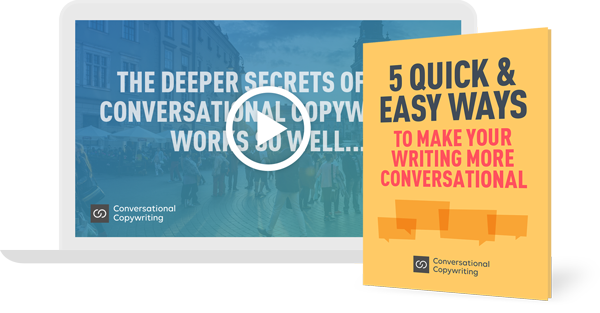
While we’re still just toddlers, we start to talk.
That’s an amazing thing.
Our young minds figure out the meaning of those sounds adults are making around us. More amazing still, we somehow figure out some rudimentary rules of grammar.
Nobody taught us, but we figured it out. The sounds. The words. The basic framework that allows us to put those words into sentences that can be understood by others.
Sure, our first few tries at talking weren’t very sophisticated.
But we got the hang of it soon enough.
And before too long, we became more or less fluent in the spoken word.
Then we went to school and we learned how to write it all down. We were taught how to put those words down on paper.
That’s amazing too.
And then… well…
Here’s how that part of the story ended for me…
At the tender age of 8, at a British boarding school, my English teacher would smack the knuckles of my hand against the edge of the desk every time I forgot to put a period at the end of a sentence.
Ouch.
So much for the joy of language.
My experience was a little extreme. But one way or another, we get the spontaneity and joy of language beaten out of us at school.
We are taught how to write correctly. Proper grammar. Proper structure. We’re taught how to write in a way that helps us pass exams.
Then we enter the workforce and we’re taught how to write for business. Not much joy or spontaneity there.
Then, if we’re in the world of marketing, we get taught the craft of writing to make sales. Marketing speak. Copywriting.
If this has been your journey, more or less…
You might wonder why your readers aren’t feeling engaged by your super-clever writing style.
Ummm… it’s because you don’t sound like a human anymore.
You probably haven’t since you started high school.
You lost the capacity to write like a real person.
But all is not lost.
Because while you may have forgotten how to write like a real person, you do still know how to talk like one.
In the coffee shop. In the bar. At the dinner table with your family.
You can still talk naturally.
And therein lies your salvation as a marketing writer or copywriter.
Forget everything people taught you about “writing well” since you first entered school. Forget about all that fancy marketing talk.
Instead, base your writing on how you speak.
Let the real you shine through.
Be human.
Be yourself.
Be conversational.
Note: If you want to know how to write sales copy with an authentic, human voice, check out my course on Conversational Copywriting.

This really resonates with me. I always hated teachers putting my writing in a box. Conversational writing suits my storytelling style. It makes me feel liberated from that English class box.
Great feedback. And yes, I think the conversational approach is definitely a good fit for storytelling and story-based marketing.
Loved this. I try to incorporate conversational writing of just about anything when i can. And i do see it more and more. Thanks!
Great post Nick … I liked it!
Glad you enjoyed it. : )